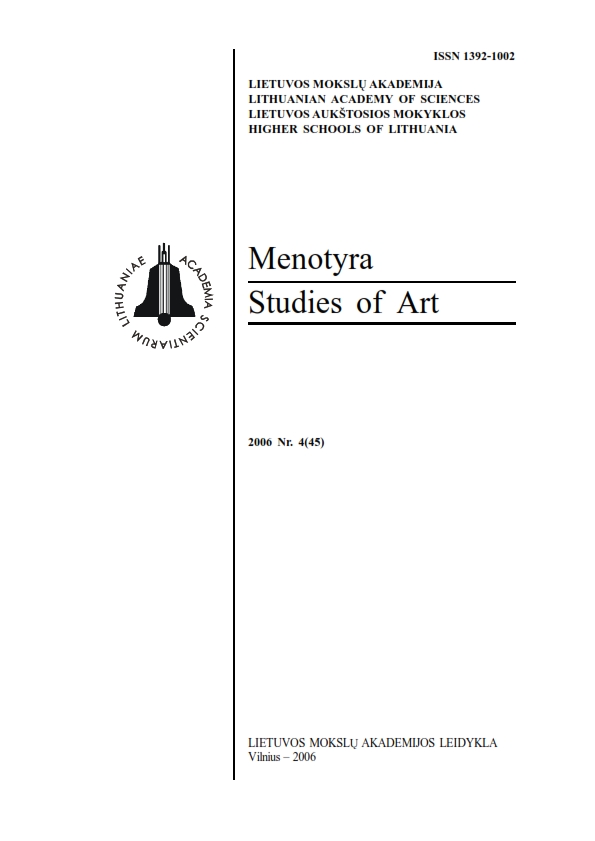Jono Jurašo karštas penkmetis Kauno dramoje
Five years of Jonas Jurašas’ works at Kaunas drama
Author(s): Audronė GirdzijauskaitėSubject(s): Theatre, Dance, Performing Arts, Post-War period (1950 - 1989)
Published by: Lietuvos mokslų akademijos leidykla
Summary/Abstract: Director Jonas Jurašas is associated with an important period in Kaunas Drama Theatre; it was a period of productive and inspirational work and lasted for five years (1968–1972). Having studied direction at A. Lunacharsky’s National Theatre Arts Institute in Moscow, Jurašas came to Kaunas already having some work experience in Russia’s and Lithuania’s theatres. The fore-most memorable plays include “dissident” productions in the Lithuanian National Drama Theatre – Leonid Zorin’s Varšuvos melodija, and especially Slawomir Mrozek’s Tango (both in 1967). In 1967 Jurašas was appointed Head of Kaunas Drama Theatre; he was determined to fundamentally change the old methods and lead the theatre out of stagnation by creating prospects to direct the work. He tried to solidify a repertoire of great quality (Michail Bulgakov’s Moliere, Gogol’s Inspector-General, Ibsen’s Nora and others), get rid of worthless, short-term plays, wake actors from their lethargic sleep, and introduced discipline as well as the need to comply with ethical standards. He paid a lot of attention to Lithuanian dramaturgy and worked on several productions that became some of the most important Lithuanian theatre works. They were Kazys Saja’s Mamutų medžioklė, Juozas Glinskis’ Grasos namai, and Juozas Grušas’ Barbora Radvilaitė. Jurašas worked passionately, had very high expectations for himself and his co-workers; he polished the form of his plays to perfection. When implementing conceptions of plays, he was always assisted by scenographer Janina Malinauskaitė and composer Giedrius Kuprevičius. Jurašas fostered an original touch to the theatre he led; he solidified the direction of an expressive and metaphorical theatre that was later refined and followed by other directors. His theatre, acting as a tuning fork of thinking and life, spread the mood of liberation and talked about the present situation more openly and daringly, even though this manner of talking was usually provisory and coded. The spectator grew and became more professional along with the theatre. Yet a person with an “anti-national” attitude could not be tolerated in a soviet theatre and society. After the production of Barbora Radvilaitė, which the government tried to correct and censor in every way, in 1972 Jonas Jurašas expressed his resistance in an open letter to various cultural institutions and the press, in which he declared his view on creative work. As a con-sequence, he was fired from the theatre by the orders of the minister of culture, and soon after that, having tasted unemployment and unwilling to compromise, he moved to the West.
Journal: Menotyra
- Issue Year: 2006
- Issue No: 4(45)
- Page Range: 16-23
- Page Count: 8
- Language: Lithuanian

